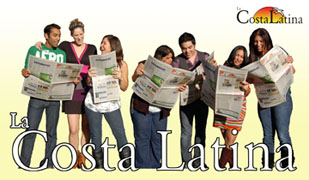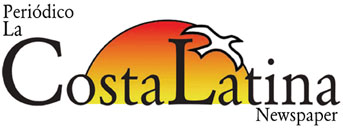 Join La Costa Latina
on
Facebook
Join La Costa Latina
on
Facebook


Advertise with us
(850) 494-7899
advertise@latinomediainc.com

|
 |
Advertise with us |
|---|
Reporte: Florida progresa en seguros de salud para niños hispanos
|
Report: Florida Makes Progress Insuring Hispanic Children By Mona Shand  TALLAHASSEE, Fla.—The rate of uninsured Hispanic children dropped to an all-time low during the first year the Affordable Care Act was in place, according to new research. TALLAHASSEE, Fla.—The rate of uninsured Hispanic children dropped to an all-time low during the first year the Affordable Care Act was in place, according to new research.The study from Georgetown University's Center for Children and Families and the National Council of La Raza found that Florida still lags behind the national average, but the rate of uninsured Hispanic kids in the state dropped more than two percentage points, from about 14.4 percent in 2013 to slightly more than 12 percent in 2014. Steven Lopez, health policy project manager for La Raza, said there is a trickle-down effect in play. "Parents were signing up for coverage and, when they did so, they were realizing that their children were already eligible for public coverage programs like Medicaid and CHIP," he said. "That's what we refer to as the 'welcome mat' effect." Earlier this month, Florida House Speaker Steve Crisafulli, R-Merritt Island, backed a proposal to waive the five-year waiting period for children of legal immigrants to be eligible for the state's KidCare program. According to the report, states that lifted those bans and expanded Medicaid eligibility made the biggest gains in terms of insuring more children. With that in mind, Lopez said, state lawmakers have a critical opportunity during the current session. Regardless of what happens at the Capitol, he said, there's more that can be done to give more children access to health care. "Nationally, two-thirds of uninsured Latino kids are eligible today for coverage programs like Medicaid and CHIP," he said, "and so, we need to work to increase awareness among families about these opportunities, and then work to remove barriers in enrollment." Lopez added that 91 percent of Florida's Hispanic children are U.S. citizens and represent the fastest-growing segment of the state's population. Nationally, the number of uninsured Hispanic children fell by 15 percent, which translates to about 300,000 children, according to the report. The report is online at ccf.georgetown.edu. |